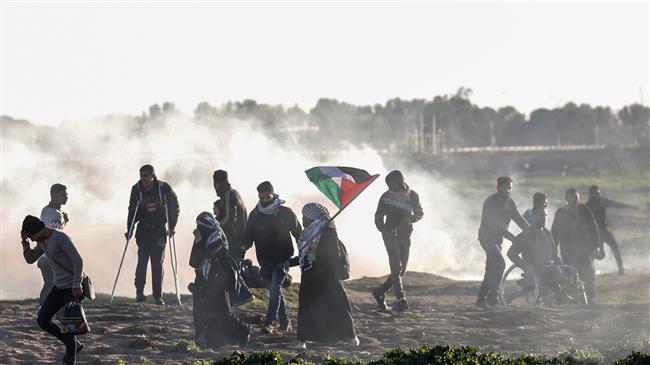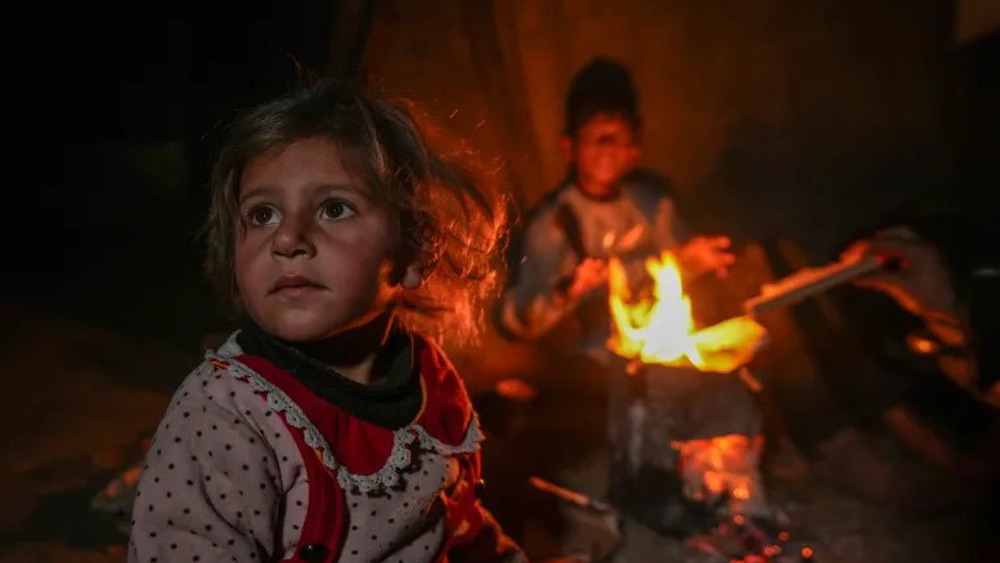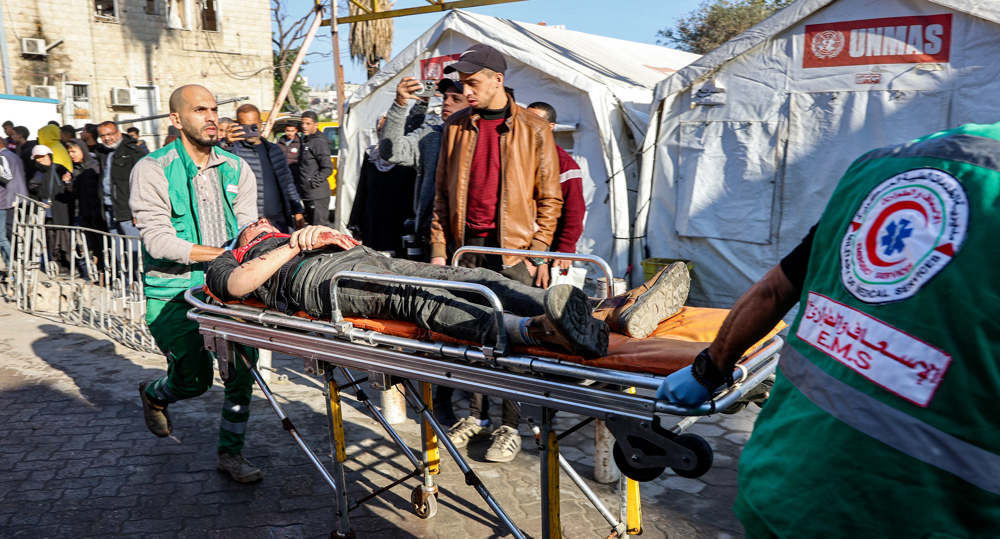Over 250 Gazans killed by Israeli fire since March 2018, says UN report
The United Nations Office for the Coordination of Humanitarian Affairs (OCHA) says more than 250 Palestinians have been killed and over 23,000 injured by Israeli forces since the Great March of Return rallies began along the border between the besieged Gaza Strip and the Israeli-occupied territories on March 30, 2018.
The UN body said in a report published on Monday that at least 254 Palestinians had been killed in the besieged Palestinian coastal enclave between March 30 and December 31. Among those killed were 44 children and four women.
“Since March 30, 2018, the Gaza Strip has witnessed a significant increase in Palestinian casualties in the context of mass demonstrations and other activities along Israel’s perimeter fence with Gaza, taking place as part of the Great Return March, as well as during hostilities and access related incidents,” the report said.
In addition, 23,603 Palestinians were injured in the same period, including 5183 boys, 464 girls and 1437 women, almost all of them during the March of Return protests.
The report raised concerns about Israel's "excessive use of force" against peaceful Palestinian protesters participating in the anti-occupation rallies.
“The large number of casualties among unarmed Palestinian demonstrators, including a high percentage of demonstrators hit by live ammunition, has raised concerns about excessive use of force by Israeli troops,” it said.
"Exposure of children to violence and lack of protection for medical teams are also of concern. Despite significant assistance provided, addressing the resulting multi-sectoral needs of the mass influx of casualties remains challenging due to the lack of funds, years of blockade, the internal divide and a chronic energy crisis,” the report added.
According to the report, the largest number of fatalities and injuries occurred during mass protests against the relocation of the United States embassy from Tel Aviv to occupied Jerusalem al-Quds in May 2018.
Palestinians have held weekly protests on the Gaza border, over the siege on the enclave and the right for refugees to return to their homes they fled during the 1948 creation of Israel.
The Gaza clashes reached their peak on May 14 last year, on the eve of the 70th anniversary of Nakba Day (Day of Catastrophe), which coincided last year with the US embassy relocation from Tel Aviv to occupied East Jerusalem al-Quds.
On June 13, 2018, the United Nations General Assembly adopted a resolution, sponsored by Turkey and Algeria, condemning Israel for Palestinian civilian deaths in the Gaza Strip.
The resolution, which had been put forward on behalf of Arab and Muslim countries, garnered a strong majority of 120 votes in the 193-member assembly, with 8 votes against and 45 abstentions.
The resolution called on UN Secretary General Antonio Guterres to make proposals within 60 days “on ways and means for ensuring the safety, protection, and well-being of the Palestinian civilian population under Israeli occupation,” including “recommendations regarding an international protection mechanism.”
It also called for “immediate steps towards ending the closure and the restrictions imposed by Israel on movement and access into and out of the Gaza Strip.”
Israel has launched several wars on the Palestinian coastal sliver, the last of which began in early July 2014. The military aggression, which ended on August 26, 2014, killed nearly 2,200 Palestinians. Over 11,100 others were also wounded in the war.
The Gaza Strip has also been under an Israeli siege since June 2007. The blockade has caused a decline in the standards of living as well as unprecedented levels of unemployment and unrelenting poverty.
The Israeli regime denies about 1.8 million people in Gaza their basic rights, such as freedom of movement, jobs with proper wages as well as adequate healthcare and education.
‘All wars have rules. All of those rules have been broken’ by Israel
VIDEO | Report flags India’s violation of rights of Rohingya detainees
Turkey's foreign minister meets Syria's de facto leader in Damascus
'Next to impossible' to rescue patients from Gaza's Kamal Adwan Hospital: Director
VIDEO | Vietnam current prosperity
Report blames gasoil exports for shortage at Iranian power plants
VIDEO | Hind Rajab Foundation names Israeli war criminals vacationing after Gaza genocide
VIDEO | Australians rally for Gaza ahead of Christmas festivities













 This makes it easy to access the Press TV website
This makes it easy to access the Press TV website